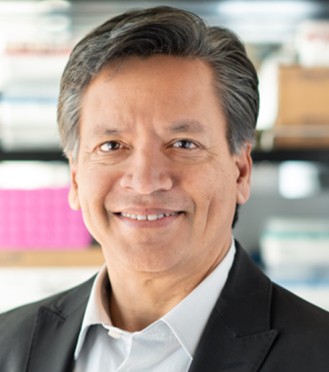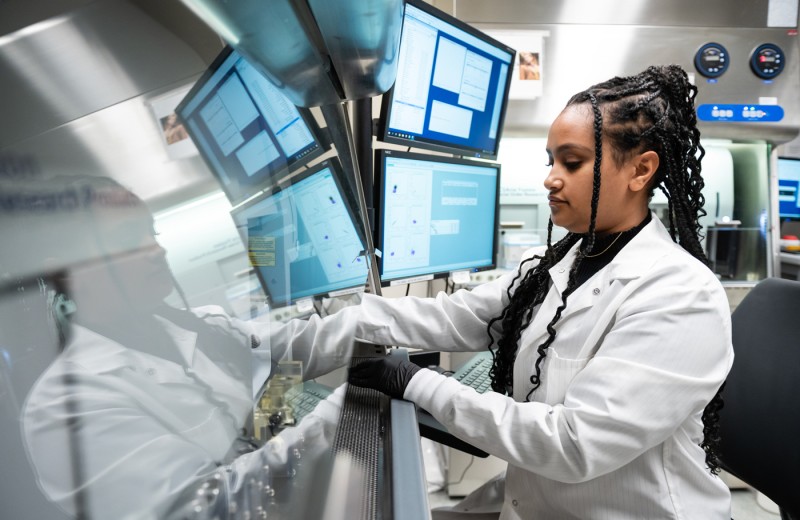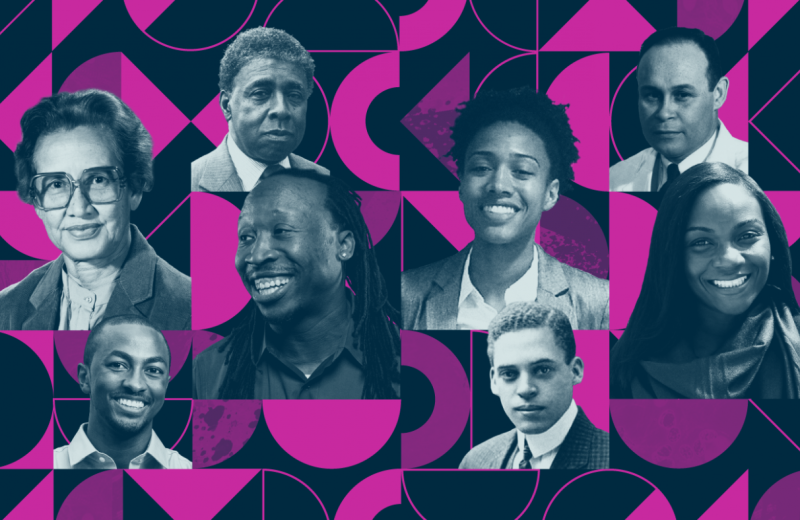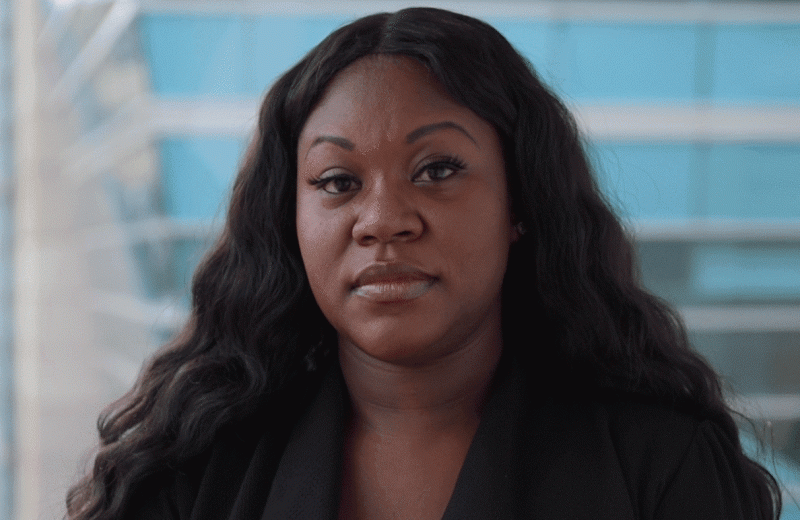Gladstone NOW: The Campaign Join Us on the Journey✕

Embark is now accepting applications for postdocs on a rolling basis.
In the wake of the murders of George Floyd and Breonna Taylor in 2020, a sea change came over the United States. The Black Lives Matter movement was born anew in a time where people were captive at home and forced to pay attention. And the ramifications of the movement spread well beyond the issues of police brutality, raising a new level of awareness of racial inequities throughout our society. The longstanding culture of anti-blackness and racism within all professional fields had to be dealt with, including the science, technology, engineering, and mathematics (STEM) fields.
In this movement to reckon with diversity and inclusion within the sciences, the leadership at Gladstone wanted to take a strong stance.
“Gladstone is a place where people from all backgrounds and fields of study can come together to overcome unsolved diseases,” says Gladstone President Deepak Srivastava, MD. “When Gladstone launched its strategic plan in 2018, diversity and inclusion were one of the key aims. As 2020 rolled out, it became clear that these efforts needed to be expedited.”
Gladstone took a few immediate steps. They published their first statements on Diversity, Equity, and Inclusion, formed a new community group focused on people of color, launched two new speaking series, Critical Conversations and Amplified: Race and Reality in STEM.
“Science is a collaborative endeavor and we most effectively tackle scientific challenges when we bring together a people from a variety of backgrounds and disciplines with different perspectives and ideas,” says Srivastava. “When we looked around our halls, it was apparent that Gladstone was lacking. We could no longer accept the status quo. We had to make some intentional changes in how we recruit scientists to our organization, and we believe we can make a great impact by focusing initially on the recruitment of postdoctoral scholars.”
“Science is a collaborative endeavor and we most effectively tackle scientific challenges when we bring together people from a variety of backgrounds and disciplines with different perspectives and ideas."
Thus, Embark, Gladstone’s Presidential Postdoctoral Program was born, which aims to increase the racial diversity of Gladstone’s postdoc population. Thanks to a donation by David and Mary Phillips, the program encourages investigators at Gladstone to reach beyond their usual professional circles to find emerging scientists who will bring their expertise and unique perspectives to Gladstone.
“We’re really planning to go out of our traditional networks for this program,” says Sudha Krishnamurthy, director of the office of postdoctoral and graduate student affairs at Gladstone. “We need to reach out to institutions that serve the individuals we’re trying to reach and bring to Gladstone.”
The goal of the program is to recruit postdocs from underrepresented groups within the sciences. Participants will have access to Gladstone’s world-class training program, which is built not only to develop individuals into great scientists but also as excellent leaders. Like all Gladstone postdocs, participants in this program will receive personalized career mentorship, build their writing and communication skills, and have opportunities to develop their mentorship skills through programs like PUMAS, Gladstone’s summer internship program. In addition, members of the program will receive tailored coaching to ensure their long-term success as well as a $10,000 stipend.
This program already has a foundation. For the last 2 years, Gladstone partnered with the Path-to-Postdoc program at UCSF, which brings in senior graduate students from underrepresented backgrounds, who are looking for postdoc positions, to tour the UCSF campus and interview at labs to see if there is a match.
“We’re continuing to partner with UCSF on this program, but it became apparent that we needed more than one path to increasing diversity within our organization,” says Krishnamurthy. “We know that it’s not just about recruitment, but also about retention. So, we’re working with our new community group, Elevated Voices, as well as our Human Resources Team to foster an inclusive community through training and consistent professional, social, and networking opportunities.”
Gladstone’s two new speaker series, Critical Conversations and Amplified: Race and Reality in STEM, also serve as a platform for investigators and other lab members to educate themselves on building a more inclusive environment.
“There’s much work to be done, within the broad science community and here in our own organization,” says Srivastava. “But we’re committed to doing the work in a sustained and long-lasting way. We won’t let the spotlight on the importance of racial diversity fade and are committed to making an impact when it comes to increasing diversity in the sciences.”
Featured Experts
Want to Join the Team?
Our people are our most important asset. We offer a wide array of career opportunities both in our administrative offices and in our labs.
Explore CareersProfessional Journeys of Black Gladstonians
Professional Journeys of Black Gladstonians
Get to know our Gladstone community during Black History Month
Profile Elevated Voices DiversityHighlighting Black Scientists from Past to Present
Highlighting Black Scientists from Past to Present
Featuring Black scientists throughout history
Elevated Voices DiversityMeet Gladstone: Nicole Velasquez
Meet Gladstone: Nicole Velasquez
Nicole Velasquez shares why she loves working at Gladstone, the importance of Black History Month, and how she spends her time outside of work
Elevated Voices Profile Diversity




